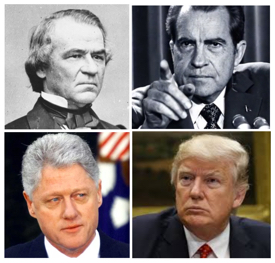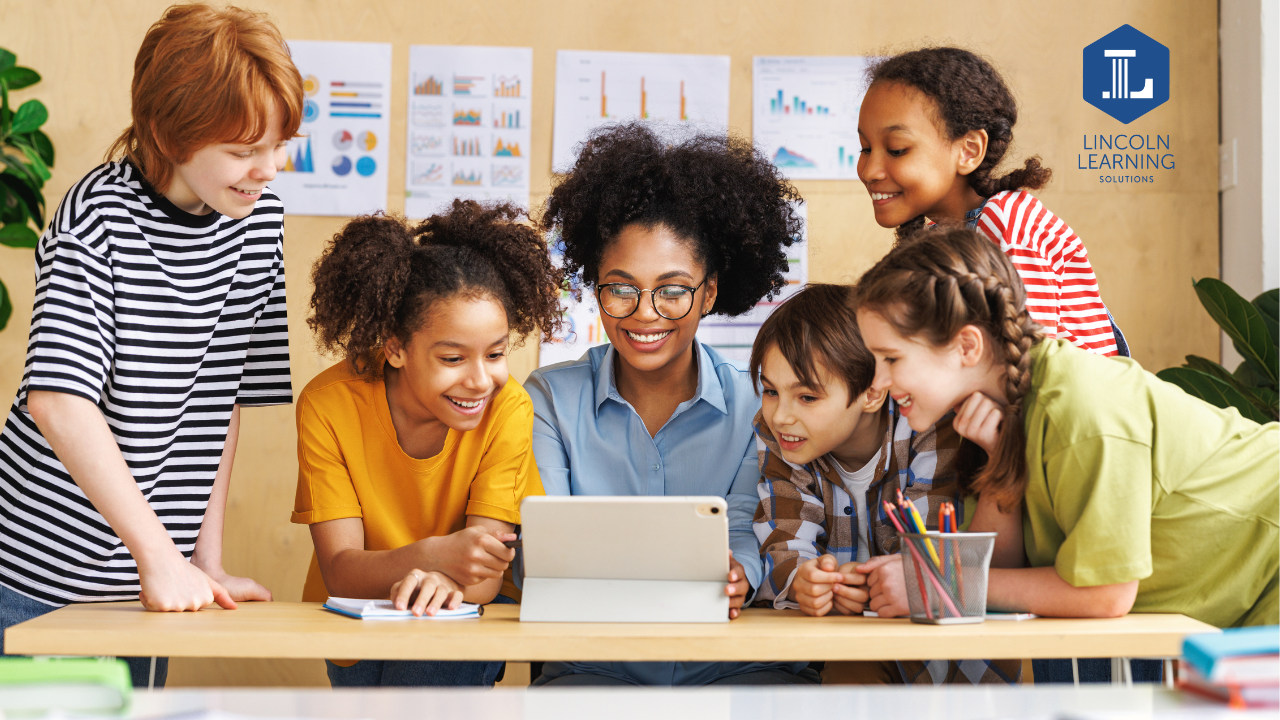Yup. You’re gonna have to talk about it. 22 impeachment resources that can help
If you’re not having classroom conversations about both current events and political issues focused on impeachment, you’re probably doing it wrong.

We’ve chatted before about ways to introduce, talk about, and integrate controversial topics on our classrooms. Today I’m flashing back to a conversation I had with Charles Vaughan, a high school teacher from South Carolina. Ten months ago, he shared some of his experiences and thoughts on incorporating political topics into his instruction.
Some of what he referenced seems relevant this week as the congressional impeachment inquiry continues to ramp up. Quoting from an article in an Atlantic titled The Case for Contentious Classrooms, Charles highlighted the importance of what he calls a political classroom:
“Schools teach many things. For the most part, though, they have not not taught students how to engage in reasoned, informed debates across society’s myriad differences.”
He also shared some thoughts based on a book titled The Political Classroom by Diana Hess and Paula McAvoy. During an interview titled Politics in the Classroom. How Much is Too Much? on NPR, McAvoy asks:
“How political do we want students to be? That’s really a question that a lot of communities struggle with and a lot of teachers struggle with. And the point of the book is to say that, in general, to be able to talk about politics is a skill that people need to learn. And it would be great if it were learned in school because these are great moments in which you bring a group of young people together who are forming their political views. They can really learn to engage across their differences and start to see that political conflict is a normal part of democratic life.” (Emphasis mine.)
The authors go on and suggest that there’s a difference between current events and political issues. As in impeachment hearings versus rule of law. They can be connected but need to be seen as different. Hess says:
“One of the problems with discussing events that just happened is that often we don’t know enough about what happened. There’s a distinction between current events . . . and discussions about controversial political issues where kids are preparing in advance and being deliberative. In the best-case scenario, teachers are able to take advantage of current events and use them as opportunities to get kids to talk about controversial political issues. There’s a big difference in talking about, “What do you think happened?” and talking about a policy issue like “Should police officers be required to wear video cameras?”
Tools and ideas to transform education. Sign up below.
So.
If you’re not having classroom conversations about both current events and political issues focused on impeachment, you’re probably doing it wrong. It might help to remember some basics about civil dialogue using a strategy from Generation Global: (Be sure to get their incredibly useful PDF.)
Civil Dialogue is not:
- a debate – there are no winners and losers in a dialogue
- mediation or conflict resolution
It is:
- an encounter with differences
- a process for seeking understanding – the goal is not come to 100% agreement
- promoting a non-binary world view. Not right or wrong, not us and them
- thinking critically about issues
- engaging confidently and with genuine curiosity about multiple views
- understanding ourselves and others as complex individuals
These three previous History Tech posts and an article from the National Council for the Social Studies can help get you started:
- Fostering Civil Dialogue
- Creating Active, Engaged, Civil, Informed, Educated, & Competent Citizens
- 4 Sites That Support Argumentative Literacy, Debates, and Controversial Topics
- Teaching Controversial Issues in Times of Polarization
Then take some time to explore these general impeachment resources:
- How the Impeachment Process Works (New York Times)
- A Primer on Constitutional Impeachment (National Council for the Social Studies)
- FAQ & Web Resources on the Impeachment Process (American Bar Association)
- ‘We live for these moments’: Educators use Trump impeachment inquiry to teach valuable lessons in class (Lancaster Online)
- St. Paul middle school teacher turns impeachment into civics lesson (Minnesota Public Radio)
- Teaching Impeachment In The Classroom (NPR)
- What the Founders thought about Impeachment and the President (Constitution Center)
- Impeachment (History, Art, & Archives: House of Representatives)
- The impeachment process, no matter how frequent, is never the same (LA Times)
- What’s the Difference Between a Whistleblower and a Leaker?
Andrew Johnson
- Impeachment Trial of Andrew Johnson (Teaching History)
- Roll call votes relating to the impeachment of President Andrew Johnson on Articles II, III, and XI (National Archives)
- The First Impeachment Crisis (US News)
Richard Nixon
- Watergate Video Lesson (Newseum)
- Watergate and the Constitution (National Archives)
- Articles of Impeachment (Watergate Info)
William Clinton
- Teaching Presidential Impeachment (National Council for the Social Studies)
- High Crimes and Misdemeanors (NYT Learning Network)
cross posted at glennwiebe.org
Glenn Wiebe is an education and technology consultant with 15 years' experience teaching history and social studies. He is a curriculum consultant for ESSDACK, an educational service center in Hutchinson, Kansas, blogs frequently at History Tech and maintains Social Studies Central, a repository of resources targeted at K-12 educators. Visit glennwiebe.org to learn more about his speaking and presentation on education technology, innovative instruction and social studies
